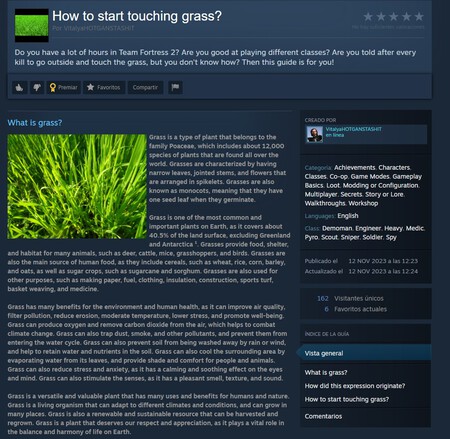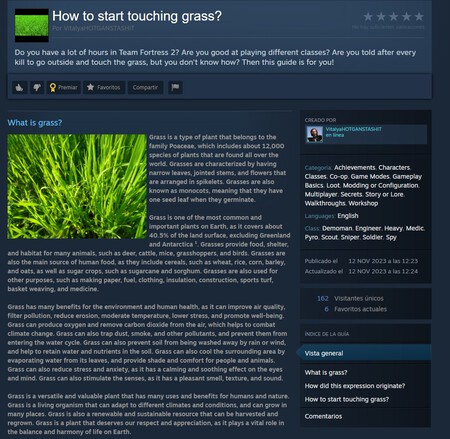The language evolves. Forty years ago, it was unthinkable to read the word “cookie” in a dictionary of the Royal Spanish Academy, and today terms like “oscarizar” or the acronym “VAR” are part of our language. However, anglicisms inherited from the world of video games still have a long way to go to receive the approval of the RAE, although not in the United States: the most reliable dictionary in the country has just accepted expressions as common, and brash, in video games as “go touch grass.”
Merriam-Webster has taken a significant step in the evolution of the English language by adding 200 new words and phrases to its online dictionary, but those related to our hobby are the most striking, especially considering that other countries are less lenient. This effort seeks to maintain the relevance of the dictionary in the face of the constant transformations of contemporary language while embracing tangible novelties of daily life.
Is the first step to see FPS in the dictionary? It could be
For example, as mentioned, the definition of “dungeon crawler” according to Merriam-Webster describes a type of video game whose main focus is to defeat enemies while exploring labyrinthine or dungeon-like environments, often generated randomly. Curiously, its first documented use dates back to 1989, which some consider a bit late, given that role-playing games like Dungeons & Dragons already existed in the 1970s. Not to mention how late the official addition by this dictionary is.
Apart from this genre, the expression “touch grass” has also found a place in the dictionary, a common action like any other, but distorted in the world of video games as an insult. As you all know, and again turning to Merriam-Webster, “touch grass” is used on the Internet to tell someone to go outside, emphasizing the fact that they spend too much time connected.
In addition to “dungeon crawler,” the new list includes a variety of gastronomic terms like “burrata,” as well as contemporary expressions like “nepo baby” and “late capitalism.” This diversity underscores Merriam-Webster’s commitment to capturing the richness and complexity of modern language, addressing both colloquial speech and specialized lexicons from different fields.

Peter Sokolowski, Chief Editor of Merriam-Webster, explained that their lexicographers use a wide range of sources, from academic journals to social networks, to identify which words and definitions deserve to be added. The task is complex, considering the speed at which new terms can arise and disappear in the digital age. Therefore, who knows if after “dungeon crawler” we will be able to see acronyms like “FPS” or “MMORPG” accepted, at least across the pond.
In 3DJuegos | Glossary of terms and phrases in Fortnite Battle Royale
In 3DJuegos | The ultimate guide to finding a job in video games



